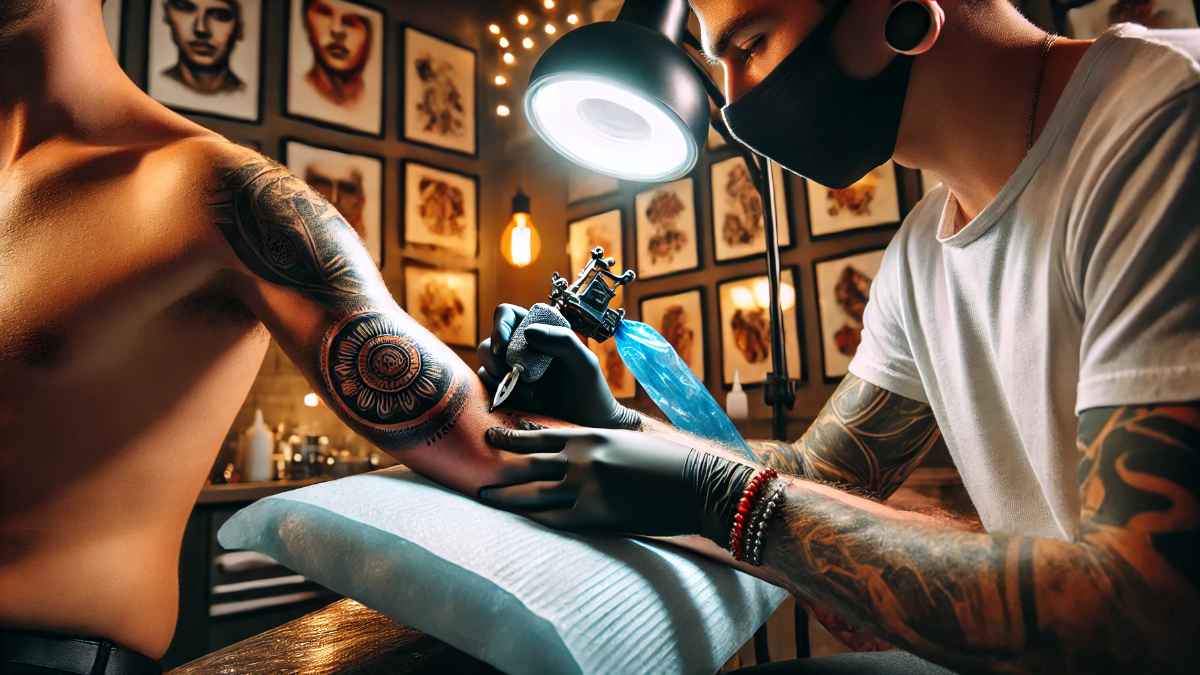Introduction
Tattoos have been a form of self-expression for centuries, representing deeply personal, cultural, and aesthetic significance. But why do people tattoo their bodies? The reasons vary, from commemorating special moments to embracing individuality. This article explores the psychological, cultural, and social motivations behind tattoos while debunking common misconceptions.
The History and Evolution of Tattoos
Tattoos date back thousands of years, appearing in different cultures worldwide. Their purposes have evolved, but their essence remains tied to identity and symbolism.
Ancient Tattooing Practices
- Egyptian and Tribal Tattoos: Early tattoos signified social status and spiritual beliefs.
- Japanese Irezumi: Used historically to mark criminals but later embraced as a form of intricate body art.
- Polynesian Tattoos: Symbolized strength, courage, and heritage.
- Native American Tattoos: Often represented spiritual connections and tribal identities.
Modern-Day Tattooing
- Artistic Self-Expression: Many choose tattoos as a medium for personal storytelling.
- Medical and Cosmetic Tattoos: Used for conditions like mastectomy scars, vitiligo, or even permanent makeup.
- Trend and Fashion: The rise of minimalistic tattoos, geometric designs, and micro-tattoos.
Psychological Reasons for Getting Tattoos
Self-Expression and Identity
People often use tattoos to reflect their beliefs, passions, or significant life events. A tattoo acts as a personal billboard, showcasing one’s values and experiences.
Emotional Healing and Empowerment
- Memorial Tattoos: Honoring loved ones who have passed away.
- Survivor Tattoos: Representing overcoming hardships, like cancer or mental health struggles.
- Motivational Tattoos: Inspirational quotes and symbols that serve as daily reminders.
The Psychology of Body Art
- Pain and Endorphins: The tattooing process releases endorphins, providing a feeling of accomplishment.
- Control Over One’s Body: Many see tattoos as a form of reclaiming bodily autonomy.
- Addictive Nature: Some individuals feel a strong urge to get multiple tattoos due to their positive experiences.
Cultural and Social Influences on Tattooing
Tattoos as a Symbol of Belonging
- Military and Brotherhood Tattoos: Soldiers often get tattoos to signify camaraderie and dedication.
- Religious and Spiritual Tattoos: Depicting faith-based imagery like crosses, mandalas, or scriptures.
- Pop Culture Influence: Many get tattoos inspired by movies, musicians, or celebrities.
The Stigma and Changing Perceptions
- Workplace Acceptance: Tattoos were once frowned upon, but today, many industries embrace body art.
- Generational Shift: Millennials and Gen Z see tattoos as normal, while older generations may hold reservations.
- Social Media Influence: Platforms like Instagram showcase tattoo trends, making body art mainstream.
Common Tattoo Designs and Their Meanings
- Butterflies: Transformation and new beginnings.
- Skulls: Mortality and living life to the fullest.
- Compass/Rose: A symbol of direction and guidance.
- Quotes: Personal mantras that hold deep meaning.
- Animal Tattoos: Strength, wisdom, or spiritual connections.
Addressing Tattoo Regret and Removal
While most people cherish their tattoos, some later regret them due to:
- Changing beliefs or lifestyle.
- Poor execution by an inexperienced artist.
- Fading ink or outdated designs.
Tattoo Removal Methods
- Laser Removal: Most effective but requires multiple sessions.
- Cover-Up Tattoos: Transforming an old tattoo into a new design.
- Tattoo Fading Creams: Less effective but used for minor fading.

FAQs About Tattoos
1. Why do people tattoo their bodies?
People get tattoos for self-expression, cultural identity, emotional healing, and artistic appreciation.
2. Are tattoos safe?
When done by a professional with proper hygiene practices, tattoos are safe. However, allergic reactions and infections can occur in rare cases.
3. Do tattoos hurt?
Pain levels vary based on placement and individual tolerance. Areas with less fat, like ribs and wrists, tend to be more painful.
4. Can tattoos affect job opportunities?
While some industries still have strict policies, many workplaces today accept visible tattoos.
5. How long do tattoos last?
Tattoos are permanent, but over time, ink may fade. Proper aftercare and touch-ups help maintain their appearance.
6. What should I consider before getting a tattoo?
Research designs, choose a skilled artist, and ensure the tattoo has personal significance.
Conclusion
Tattoos serve as a powerful form of self-expression, bridging cultural traditions, personal journeys, and artistic passion. While body art remains a deeply personal choice, understanding its significance enhances appreciation for this ancient and evolving practice. Whether you’re contemplating your first tattoo or simply curious about their meaning, one thing is clear—tattoos tell stories that last a lifetime.

